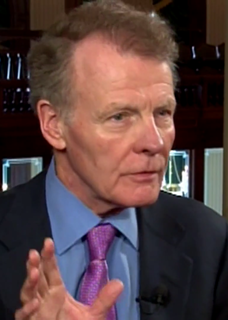A Quote by Robert Anton Wilson
Taxation is robbery based on monopoly of weapons
Related Quotes
If taxation without consent is robbery, the United States government has never had, has not now, and is never likely to have, a single honest dollar in its treasury. If taxation without consent is not robbery, then any band of robbers have only to declare themselves a government, and all their robberies are legalized.
What is the only provocation that could bring about the use of nuclear weapons? Nuclear weapons. What is the priority target for nuclear weapons? Nuclear weapons. What is the only established defense against nuclear weapons? Nuclear weapons. How do we prevent the use of nuclear weapons? By threatening to use nuclear weapons. And we can't get rid of nuclear weapons, because of nuclear weapons. The intransigence, it seems, is a function of the weapons themselves.
If a company is not a monopoly, then the law assumes market competition can restrain the company's actions. No problem. If a monopoly exists, but the monopoly does not engage in acts designed to destroy competition, then we can assume that it earned and is keeping its monopoly the pro-consumer way: by out-innovating its competitors.
What happened to the Soviet Union happened mainly for domestic reasons. It was a failure of the model based on a command economy and dictatorship. The rejection of freedom and democracy, the decisionmaking monopoly of one party, and the monopoly of one ideology all had a chilling effect on the country. That model turned out to be incapable of making structural changes. It did not open up ways for initiative and was overly centralized.






































